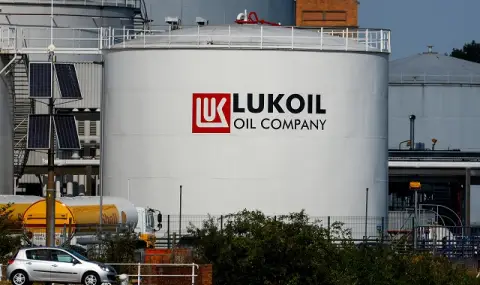Hungary and Slovakia have asked the European Commission to mediate a consultative procedure with Ukraine, Hungary's foreign minister said Monday, after Kiev put Russian group Lukoil on a sanctions list, halting its supplies to both countries.
Slovakia and Hungary stepped up pressure on Kiev after last week saying they had stopped receiving oil from Lukoil via Ukraine. Hungary receives 2 million metric tons of oil from the Russian group annually, about a third of its total oil imports, Peter Szijjártó said.
"I spoke with the Ukrainian foreign minister yesterday, he said they allow any transfer of oil, but that is not true," Szijharto told reporters while in Brussels.
The two countries have already started consultation with the European Commission, he said. "The commission has three days to comply with our request, after which we will take the matter to court.
Szijjártó said that if the consultation procedure fails, Hungary and Slovakia will instead take the matter to an international court of their choice.
In an attempt to sell the released quantities of crude oil "Lukoil" added about 140,000 metric tons of crude oil to its initial unloading plan for the Black Sea port of Novorossiyk for July, market sources said.
Lukoil's oil deliveries through the southern section of Druzhba account for about 50% of pipeline flows. MOL's refineries in Slovakia and Hungary are entirely dependent on supplies from "Lukoil".
The second largest supplier on the route is Tatneft, which also supplies oil to MOL, while Gazprom Neft, Russneft and some other small independent producers provide the rest of the volume.
Alternatively, Hungary can import oil from the Croatian seaport of Omisal via the Adria pipeline, while Slovakia is landlocked and can only receive oil through Hungary.
As of April, oil imports through Omisal were around 500,000 metric tons each month. Deliveries include such oil grades as Basrah, Azeri BTC and CPC Blend.
Russia continues to supply natural gas and oil to landlocked Hungary and Slovakia via Ukraine despite the war in the country and existing EU sanctions against Russian crude oil.
Countries have exemptions from oil sanctions to give them more time to transition to alternative sources of supply.
Slovakia and Hungary also supply energy to Ukraine. Szijjártó said Hungary supplied 42% of Ukraine's electricity imports last month.
Slovak Prime Minister Robert Fico said at the weekend that his country had helped supply diesel to Ukraine, in comments in which he criticized the sanctions and said Slovakia would not be "hostage" of Ukrainian-Russian relations.
On Monday, Slovak Foreign Minister Juraj Blanar echoed some of Fico's comments, saying the sanction had a greater impact on Slovakia and the EU than on Russia itself.
